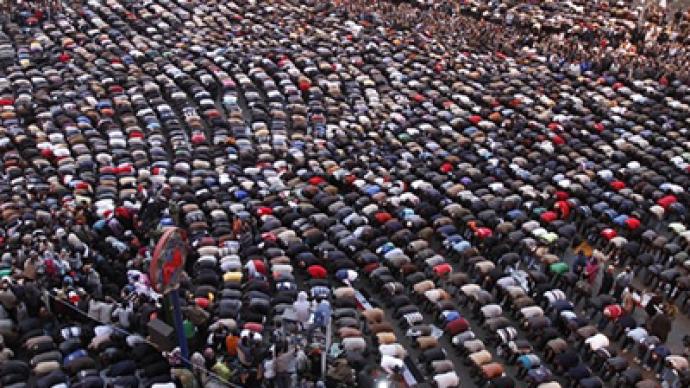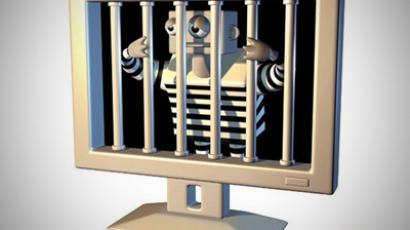Cairo: million-strong demonstration

The streets of Cairo are empty. Cars are pulled over by the police after every 50 or 100 meters.
The police – bearded young men from the Muslim Brothers group and common-looking students – wear white armbands and conduct car checks. The checks consist of looking at the driver's license, a swift look across the interior for any weapons, and saying "Hello" to passengers. There are also army check posts. They don’t check anything, but they don’t let cars drive on closed streets, of which there are many. Troops and tanks guard embassies, rich neighborhoods, and banks, which are closed.My flight landed in Cairo at 2:00am, and there was no car to pick us up until 7:00am. In the minivan, I was joined by seven foreigners who introduced themselves as 'consultants'. During police checks, they would sink deeper into their seats and stay still. When army troops were checking us, they would smile happily. They made it clear that they represented international special services. When I told them I was from Russia, one of them gave me an enthusiastic slap on my shoulder. Their interpreter hasted to inform them that in Egypt, it is inappropriate to touch a woman, even in a friendly way.The million-strong demonstration began on February 1 with a midday prayer on Tahrir Square.The square is partly dug up, partly covered with debris. All streets along which demonstrators flow in are closed by American-issued tanks with covered gun muzzles. Tank crews kiss children and toss them high up in the air, so that their parents could take great pictures. All people going to the square are required to show their IDs, but nobody looks at them. My bag was carefully inspected three times. At the same time, nobody was interested in my tripod case. On the square, there is no stage or podium. Everybody comes with makeshift posters; most of them call for Mubarak to step down. "We are going to stand here until he realizes that he has no time anymore," I was told by a student lying on the square, blanketed by his own poster saying, "Mubarak is worse than a donkey". Small groups are forming in the crowd and chant joyful cheers or fiery condemnations addressed to Mubarak, the USA, and Israel. I ask the people why it's those three that they hate so much.They explain, "For 30 years, Mubarak has served not the people of Egypt, but the USA and Israel. He is more of their patriot than they, themselves, are." About 20 people are standing in a circle, a flag of Egypt in their hands, singing funny couplets about Mubarak's policy. Helicopters keep flying over the square; and people wave at them: "Go away!" People discuss what type of ordnance – live or gas-loaded – the choppers are carrying, and where the choppers are made – in America or in Russia. One protester was seriously telling me that the tanks were not American, but Israeli, and that they had been made not in Israel, but in Egypt. Standing out among demonstrators are some Europeans – small groups of elderly activists with similar posters saying "We are all Egyptians now". Of those I got to talk to, all were English. The Egyptians look at them with favor, gladly taking photos with them. "This is our revolution. Obama is late," I am told by a guy named Mustafa, who characterized himself as member of a youth committee for order. In the backyards of the square, along the fence of a Christian church, a sheet of fabric about 20 meters long is spread out on the ground. Christian and Muslim boys together are covering it with more slogans and condemnations of Mubarak.Christians can be noticed on the square, too. They are standing with posters on which there are a cross and a crescent as a sign of unity. Some of the activists attempt to regulate the chaotic traffic on the square.At six o'clock, it is already three hours into the curfew. Some people head home, but many are going to spend the night here.The internet is down across Cairo, and phone communications also crash from time to time. On February 1st, nobody from the government or the opposition came to speak in front of the protesters. The only plan the demonstrators have now is to gather on the square until Mubarak steps down. Groups of men from neighborhood self-defense units are walking here and there. Mostly they consist of middle-aged family men armed with sticks and shovels. Cafes, stores, and markets are all closed, but there are many people outside who stand in circles and discuss what is happening.
Nadezhda Kevorkova, RT, Cairo, Egypt














